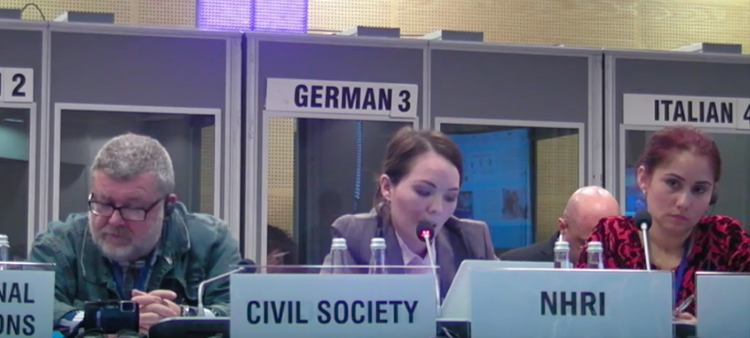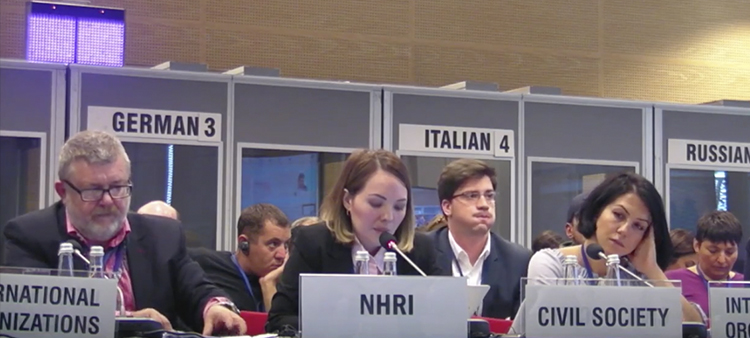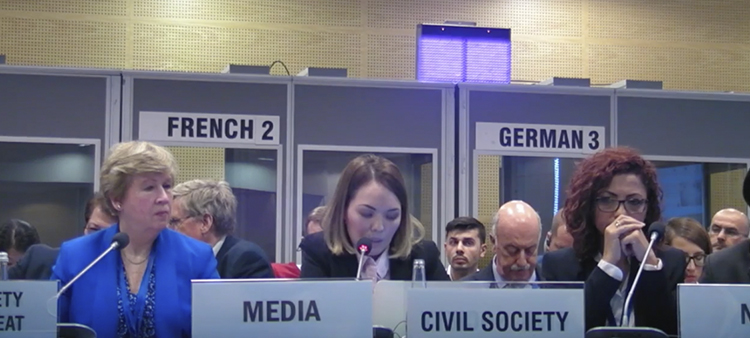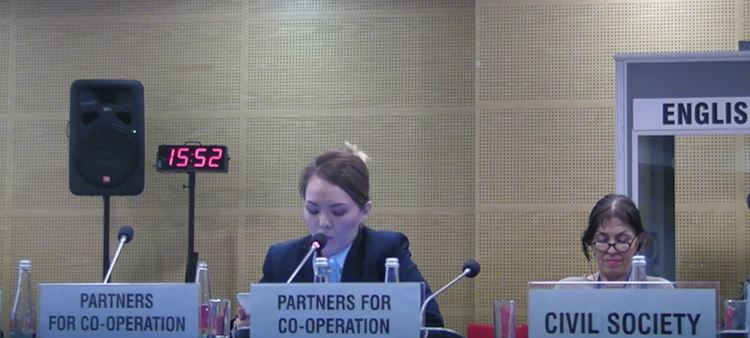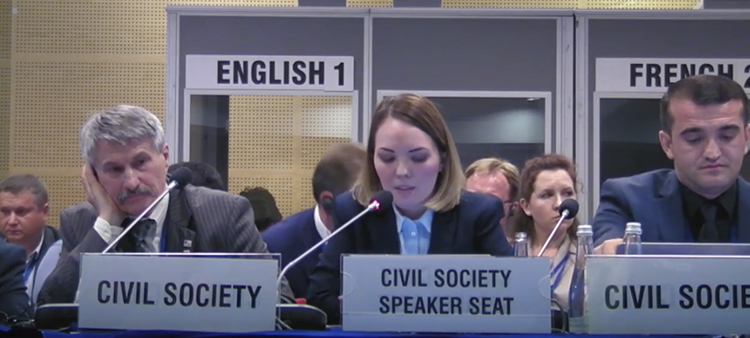Tajikistan violates rights of national minorities
Published on 2017-09-18, Warsaw
After the collapse of the Soviet Union, when Tajikistan was on fire in the Civil war of the 90s, practically all representatives of other nations, and, especially, Russian and Russian-speaking, left the country. At the moment, the national composition became more monolithic than it was before the collapse of the USSR. The most numerous national minorities are the Uzbeks, whose estimates are from 25 to 30 percent of the population. Basically, their basic rights are not infringed, but the attitude to them on the part of the authorities leaves much to be desired. They are not so often admitted to elections as candidates for elected bodies, it is not easy for them to become deputies, mayors, even for of the territory where they constitute the majority. In parliament and other there are no representatives of Uzbek nationality. Moreover, hostile attitudes toward this ethnonational group are exaggerated both in the official media, and often in the so-called independent media and social networks. The word "Uzbek" became a common name in Tajik society. Naturally, this the attitude cannot but cause a backlash. Although Uzbeks are not openly show any kind of discontent or protest, but in everyday life they will not purposely speak the state language, or in other forms to show their reciprocal hostile attitudes towards the Tajiks.
The second by composition ethnic minorities in Tajikistan are Kyrgyz. As if it did not seem paradoxical, but to this ethnic group, in spite of numerous problems in the border areas, in society there is better and loyal attitude towards them. The only problem, according to recent observations, faced by Kyrgyz is the language. Even before these times, while territory of Tajikistan as in the rest of the USSR, interethnic communication was Russian, and Tajikistan’s Kyrgyz people knew the native language and Russian. But, with the departure of the Russian language, gradually, the Kyrgyz population, like the Tajik one, began to lose their Russian and replace it with native language, but for training state language in the Kyrgyz-speaking territory is practically not allocated and not allocating enough funds. After all, there is not only need to educate school-age children, but also the older generation. Quality in general schools both with the Tajik language, and with Kyrgyz every year decreases. In the selection and appointment of personnel, the factor of language is not takes into account and often the lack of understanding of the language in these territories between officials and the local population becomes the cause of discrimination.
Another Tajik ethnic group is Pamiri and Yagnobi, where too many problems have accumulated. While in the Yagnobians the main problem is protection from the disappearance of their language, with the Pamiri problem and intercultural dialogue. This mono-ethnic group is also confessional minority. Although it has not been clearly seen so far discrimination on confessional grounds, but with the emergence of extremist religious movements in Tajikistan, this component cannot be ruled out in future. Even at the domestic level between the Pamiris and the other Tajiks fairly trustful and good relations have developed, between representatives of central government and the local population are very tense, and after known events of the summer of 2012, these relations have even become in some way hostile, which subsequently led to the events of the spring of 2014. Unfortunately, the central government does not do anything to remove this tension. Moreover, it is practically forbidden to speak in local languages in public institutions and at official events up to weddings. For example, if an official from a local at the wedding of a relative congratulate the newlyweds in their native language, it can cause problems at work. After the latest amendments to the law on ordering the rituals was imposed by the legislative organizers of weddings to control the use of the state language at such events. That is, with each passing day the sphere of use of these languages narrows. In schools, Lessons are being taught in these languages. There is information that once in times of restructuring on the regional television programs were broadcast in Pamir languages, but today it is forbidden on this television even to give interviews in local languages. The security forces in the Badakhshan sector are especially concerned that there would not be "unreliable" employees, that is, Pamiris.
In addition, in Tajikistan live Roma (Romi). There are no special schools for romi, no language support, no cultural center. They do not go to school, they do not get education, they do not give out their passports, although they live all their lives in Tajikistan and were born there. When one Romi representative took the initiative to create a religious center for Roma he was ridiculed and subjected to abuse. They are aware of this attitude towards themselves, but do not try to create comfort for themselves or well-equipped dwellings. Without passports cannot even move freely and leave the country. The problem is that when issuing a passport in the graph, the nationality has to specify the Tajik nationality, which, as it were, humiliates the officials of Tajikistan. For this reason, they are not issued passports. Some for a certain payment, that is, by giving bribes, get all the same passports, but even so their rights are very limited, and there is no right to choose at all.
On behalf of Human Rights Vision Foundation, we call on the Government of Tajikistan to take an emergency program of practical measures to protect groups of Pamir and Yagnob representatives of national minorities as soon as possible. For this purpose, it is necessary to consider the possibility of creating a local television in the languages of Pamirians and Yagnobians.
It is also necessary to create and provide courses on the study of the state language in the territories where the Kyrgyz population predominantly lives, creating in parallel all the conditions for learning in schools in their native language. Create all necessary conditions for local Roma for permanent residence and grant them citizenship.
To improve relations with the Uzbek ethnic minority, it is necessary to create joint programs with Uzbekistan to normalize inter-ethnic and international relations.
Alim Sherzamonov
Expert, member of Social-Democratic Party of Tajikistan
Viktoriya Nadejdina
Chairman
Human Rights Vision Foundation
*The report is prepared with the assistance of Alim Sherzamonov, expert, chairman of group of Social-Democratic Party of Tajikistan in Mountain Badakhshan



